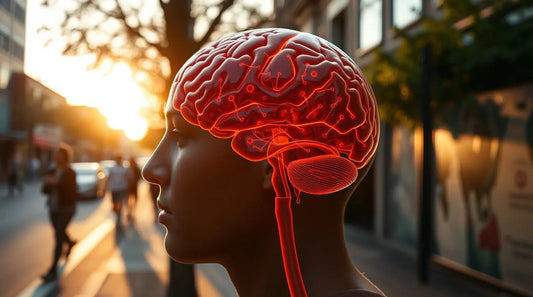Living with Uncertainty: Managing Anxiety and Stress with Long Covid

Living with Long Covid presents a unique set of challenges that extend beyond the physical symptoms of the illness. Alongside the fatigue, brain fog, and persistent symptoms, individuals with Long Covid often grapple with uncertainty about their future and the progression of their condition. This uncertainty can lead to heightened levels of anxiety and stress, impacting both mental and emotional well-being. In this article, we will delve into the psychological toll of Long Covid and explore practical strategies for managing anxiety and stress amidst uncertainty.
Understanding Anxiety and Stress in the Context of Long Covid
Anxiety and stress are natural responses to uncertainty, and the unpredictability of Long Covid can exacerbate these feelings. The fear of experiencing a relapse, concerns about long-term health implications, and uncertainty about when or if symptoms will improve can all contribute to heightened anxiety and stress levels. It's essential to recognize that these feelings are valid responses to the challenges posed by Long Covid and that support is available to help individuals cope.
The Psychological Toll of Long Covid
Living with Long Covid can take a significant toll on mental health, impacting various aspects of daily life. Many individuals experience heightened levels of anxiety, often accompanied by feelings of worry, fear, and uncertainty about the future. The social isolation resulting from Long Covid can further exacerbate these feelings, leading to increased loneliness and distress. Additionally, the inability to engage in usual activities and routines can contribute to a sense of loss and frustration, further impacting mental well-being.
Coping Techniques for Managing Anxiety and Stress
While living with Long Covid may feel overwhelming at times, there are several effective coping techniques that individuals can utilize to manage anxiety and stress:
-
Mindfulness Meditation: Mindfulness meditation involves focusing on the present moment and cultivating awareness without judgment. By practicing mindfulness, individuals can learn to observe their thoughts and feelings without becoming overwhelmed by them, reducing anxiety and stress levels in the process.
-
Relaxation Exercises: Engaging in relaxation exercises, such as deep breathing, progressive muscle relaxation, or guided imagery, can help promote relaxation and reduce physical tension. These exercises can be particularly beneficial for alleviating symptoms of anxiety and stress, providing individuals with a sense of calm and tranquility.
-
Cognitive-Behavioral Strategies: Cognitive-behavioral techniques, such as cognitive restructuring and thought challenging, can help individuals identify and challenge negative thought patterns contributing to anxiety and stress. By replacing irrational beliefs with more balanced and realistic ones, individuals can cultivate a more positive outlook and reduce feelings of distress.
-
Physical Activity: Regular physical activity has been shown to have a positive impact on mental health, reducing symptoms of anxiety and depression. Even low-impact activities such as walking, yoga, or tai chi can help individuals manage stress and improve overall well-being.
Seeking Professional Support
In addition to self-help strategies, it's essential for individuals living with Long Covid to seek professional support when needed. Therapy, counseling, and support groups can provide individuals with the tools and resources they need to cope with anxiety and stress effectively. By working with a mental health professional, individuals can gain insight into their thoughts and feelings, develop healthy coping mechanisms, and receive the support and encouragement they need to navigate the challenges of Long Covid.
Conclusion
Living with Long Covid can be an incredibly challenging experience, particularly when faced with uncertainty about the future. By understanding the psychological toll of Long Covid and implementing effective coping strategies, individuals can manage anxiety and stress more effectively and improve their overall quality of life. Whether through mindfulness meditation, relaxation exercises, or seeking professional support, there are many avenues available for individuals to cultivate resilience and navigate the uncertainties of Long Covid with strength and courage



